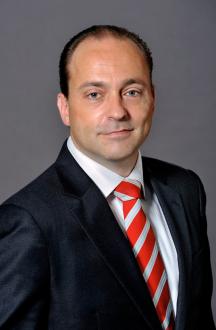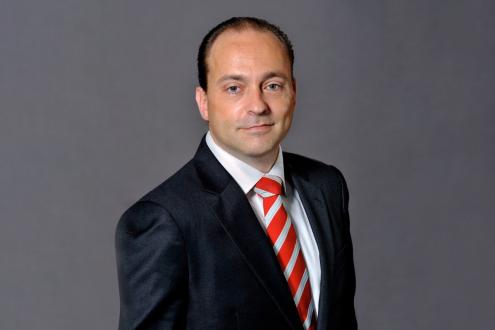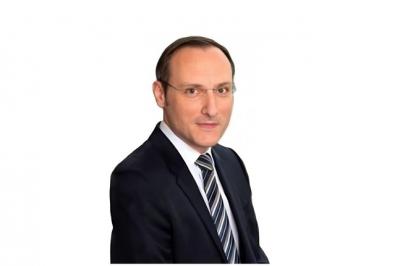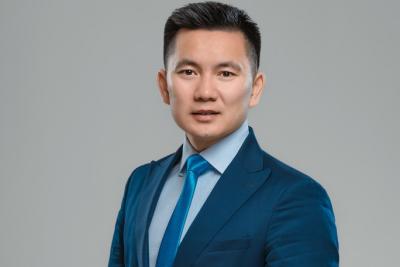Indosuez Wealth Management’s Arjan de Boer on Encouraging and Developing ESG Adoption in Private Client Portfolios

Arjan de Boer of Indosuez Wealth Management
Nov 14, 2022
Arjan de Boer is Head of Markets, Investments & Structuring for Asia at Indosuez Wealth Management. Amongst his various missions, he has a corporate and personal mandate to spread the word around sustainable investing, often driven these days by ESG metrics and pointers. He joined a lively and insightful panel discussion on September 14 at the Hubbis Investment Solutions Forum in Singapore. We have summarised some of his views in this short review.
Arjan opened his observations by noting that the evolution of ESG investing is a journey across the different elements of E, S and G and therefore a very broad subject that can mean different things to each person. “Perhaps the most accessible element is the environmental part, as that is what first comes to mind amongst clients,” he told delegates. “For us, within our group, ESG has been part of our DNA for many years, and Crédit Agricole is known in Europe as the green bank. We have been actively promoting this for many years as a first mover, and we see more financial institutions jumping on the movement, and increasingly, more private clients.”
Arjan explained how ESG is becoming more mainstream and that there are more and more products catering directly to the articulation of ESG-related investor preferences. “ESG began at the institutional level, as in any segment of the financial markets, and has slowly trickled down to the individual investor levels,” he reported. “We saw that type of adoption trend in the derivatives boom of the ‘80s and the ‘90s, and ESG is no different in that sense.”
However, he said there was a lot of scepticism around ESG, based on some confusion as to what defines ESG and ESG metrics, and also on the assumption that returns needed to be sacrificed to achieve a high ESG score on portfolios.
“But that belief around sacrificing returns in order to participate is changing, as people can see that those securities with high ESG credentials are actually performing better, and that helps drive adoption across the board, from older investors who focus mostly on returns to younger investors who are more in tune with ESG from an ideological point of view,” he explained.
Arjan told delegates that since 2015, Indosuez had ranked their client portfolios on ESG metrics, mining down into the nuances of ESG scores per security, per fund, on the E, S, and G separately, and on their average scores. “We then take the ESG scorecards and we can use those as the basis for some worthwhile conversations with clients about their ESG adoption and allocations,” he explained. “Those discussions are often well appreciated and help enhance overall engagement.”
Arjan reported that this approach helps improve general understanding around ESG, which is both complex and often widely misunderstood. He conceded there is still a lack of reliable data, a lack of consistency, and not enough collective support or collaboration amongst regulators. “We know these challenges and limitations and we know that there is some greenwashing taking place, but this is an evolving phenomenon, and we believe we cannot just wait for the landscape to be perfect, we must do our part and act.”
Arjan returned to his earlier comment about the lack of regulatory consistency around the world but remarked that there has been some progress. In Singapore, he said MAS had already provided some guidelines to financial institutions of all types to help encourage ESG adoption and to encourage greater data disclosure and transparency around these metrics and issues. He said they will also soon issue some new guidelines on how to integrate sustainability within the private banks in Singapore
“We are supportive of some kind of common approach, and common guidelines to the industry, and hopefully not too restrictive, in order to achieve strong alignment,” he said. “There is a growing focus on climate and on decarbonisation, and within the ESG umbrella this is the element that will accelerate in terms of adoption and visibility, as most of the companies around the world are committed to carbon reduction, and this is clearly something that everyone can easily understand and visualise. Carbon ratings will also increasingly feature within portfolio ratings and will in turn accelerate the adoption of broader ESG principles and metrics.”
Arjan closed his observations by noting that amongst Indosuez clients there is growing adoption, as borne out by portfolio ratings. This is partly due to our product curation, and also due to our efforts at communicating and promoting ESG. “We certainly believe that these types of measurements we have focused on are helping in the increased adoption amongst our clients.”

Head of Markets, Investments & Structuring, Asia at Indosuez Wealth Management
More from Arjan de Boer, Indosuez Wealth Management
Latest Articles






